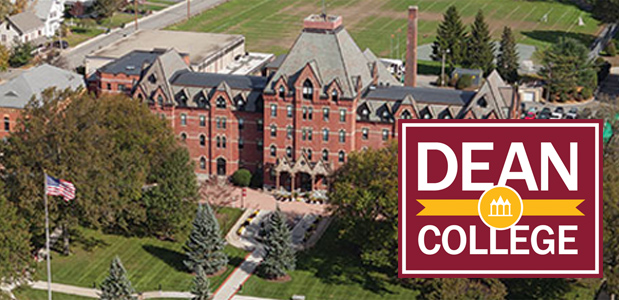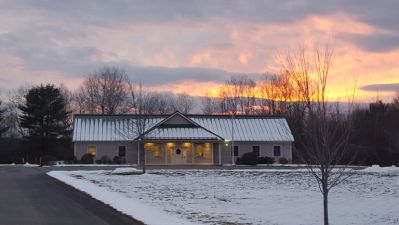Vassalboro Appeals Board upholds permit to So. Stanley Rd. resident
 by Mary Grow
by Mary Grow
At a May 22 meeting, Vassalboro Board of Appeals members unanimously denied Jonathan Blumberg’s appeal of a March permit granted by Codes Officer Richard Dolby to Bernard Welch of South Stanley Hill Road.
On March 20, Dolby issued a permit to allow Welch to modify a previously-approved auxiliary building, described as a shed for processing vegetables, by adding a stairway to upstairs living quarters. Blumberg believed the permit was improperly granted, for a variety of reasons.
In a preliminary action when the appeal was first presented May 8, Blumberg challenged the adequacy of public notice. Board members John Reuthe, Leon Duff and Gary Coull voted unanimously that notice requirements were met for the May 22 meeting.
Blumberg again challenged the list of abutters who were notified, claiming it should have included residents across South Stanley Hill Road and across Outlet Stream. Welch’s lot with the building for which the permit was issued extends west to the stream; he owns a separate lot on the east side of the road.
Board members, guided by town attorney Kristin Collins, found that Welch’s second lot was not involved and that Outlet Stream is a barrier.
In other preliminary issues, board members rejected Blumberg’s claims that Collins and Reuthe were not impartial. Collins said she had nothing to do with granting the permit. Coull and Duff voted that Reuthe’s connection with Welch’s wife Jody through the Oak Grove Foundation did not constitute conflict of interest or bias.
Oak Grove Foundation spokeswoman Joann Austin said Jody Welch is on the foundation’s board and Reuthe is a candidate for membership who attended an April board meeting.
With the preliminary issues out of the way, Blumberg presented arguments against the permit, starting with Welch’s violation of Vassalboro’s subdivision ordinance in 2015 and 2016. The town ordinance prohibits issuing a permit to someone in violation of any ordinance or who has done something requiring a permit without getting the permit.
He also questioned the validity of the curb cut permit issued by the state Department of Transportation; questioned the type or types of business in which Welch engages, whether farming, a bed-and-breakfast or something else, and whether a site review permit should have been required for a new commercial operation; and claimed the septic system approved with the building was too close to a wetland.
Board members found Welch’s earlier violation had been resolved before the March 2018 permit was issued. They emphatically rejected Blumberg’s interpretation of the town ordinance as meaning that someone who acted without a required permit was thereby forever barred from getting any other town permit.
They ruled that they had no jurisdiction to review the curb cut approved by the state.
They found that the septic system permit had been properly issued, based on information Dolby supplied from state shoreland maps and his report of an inspection by state officials and local soils scientist Jack Lord.
They ruled that the modification to the building did not require a site review permit. Collins read from the town ordinance that site review requirements do not apply to residences, home occupations or agricultural occupations.
Having unanimously rejected Blumberg’s arguments, board members voted unanimously to deny his appeal.
Blumberg asked that his objections to several board actions be recorded. Collins stated Blumberg’s right to ask for a reconsideration or to appeal the board’s decision to Superior Court. The board’s decision is final as of May 22, she said, but board members will need to reconvene at a date to be determined to sign a formal notice of decision in a public meeting.




 Dean College, in Franklin, Massachusetts, has named the students that have earned a place on the dean’s list for the Fall 2017 semester.
Dean College, in Franklin, Massachusetts, has named the students that have earned a place on the dean’s list for the Fall 2017 semester.
 The following local residents were among 1,608 students from Worcester Polytechnic Institute (WPI), in Worcester Massachusetts, named to the university’s dean’s list for academic excellence for the fall 2017 semester.
The following local residents were among 1,608 students from Worcester Polytechnic Institute (WPI), in Worcester Massachusetts, named to the university’s dean’s list for academic excellence for the fall 2017 semester.